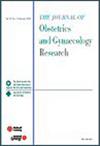Current medical support for victims of domestic violence and sexual assault: A nationwide survey among obstetricians and gynecologists in Japan
Abstract
Aim
In 2018, one-stop support centers for victims of sexual crime and violence were established across Japan. Despite this initiative, recent findings suggest inadequate medical response methods for victims of sexual violence. This study conducted a nationwide survey to assess the current state of medical support available to such victims.
Methods
A survey was conducted via e-mail on 16,500 obstetricians and gynecologists from December 10, 2022, to January 20, 2023. A total of 1387 responses were received (response rate: 8.4%), and 1158 valid responses (valid response rate: 7.0%) were analyzed.
Results
Among the respondents, 76.5% reported examining patients suspected of being victims of domestic or sexual violence, with 90.5% recognizing the definition of sexual violence and 73.8% aware of the one-stop support centers. However, only 42.3%, 25.9%, and 19.6% had opportunities to learn about sexual violence against children, men, and sexual minorities, respectively. The most common learning opportunity was attending academic lectures on sexual violence. The actual examination rates for cases involving sexual violence against children, men, and sexual minorities were 26.5%, 1.6%, and 1.8%, respectively. Physicians who learned about sexual violence against children, men, and sexual minorities were significantly more likely to have experience in examining each case (p < 0.001, p < 0.01, p < 0.001).
Conclusions
Despite their critical role, obstetricians and gynecologists in Japan have limited opportunities to learn about and support victims of domestic or sexual violence. Urgent actions are needed to ensure timely medical care, establish collaborative practices, and develop systematic protocols nationwide.

 求助内容:
求助内容: 应助结果提醒方式:
应助结果提醒方式:


